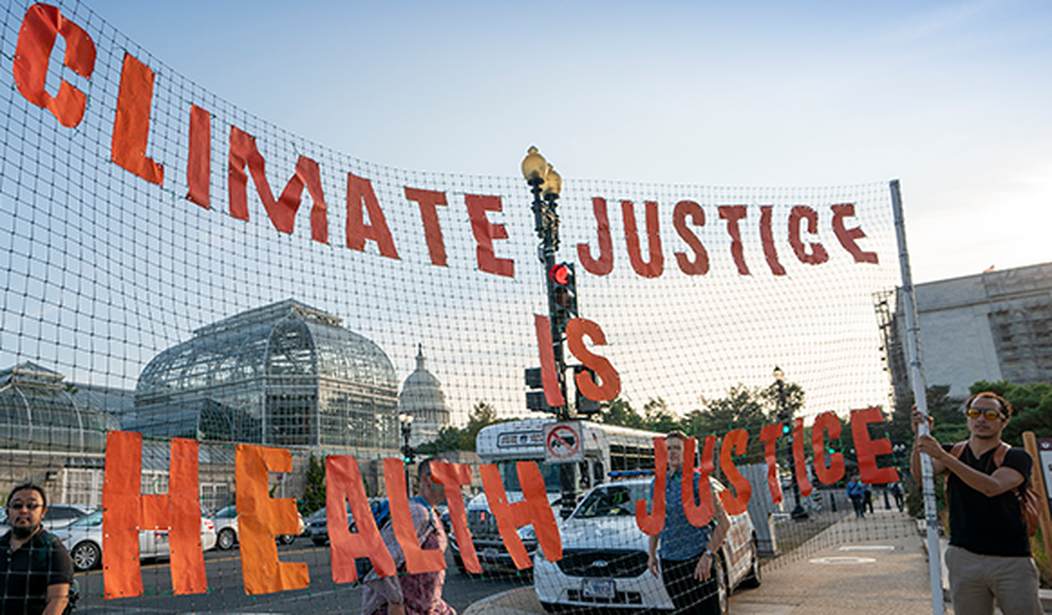The media and progressive legislators are relentless in telling voters climate change is an issue they should care enough about to pay for sweeping new legislation like the Green New Deal, which “would cost taxpayers up to $93 trillion, a truly astounding sum that comes out to nearly $600,000 per US household,” writes Brad Polumbo of the Foundation for Economic Education.
According to a new poll out of the Competitive Enterprise Institute (CEI), Americans aren’t buying it. Literally nor figuratively.
The poll, conducted by CRC Research, is an online survey of 1,200 registered voters nationwide April 15-18, 2021 with a 2.83 percent overall margin of error.
…
When asked about willingness to spend out-of-pocket to mitigate climate change, 35 percent of respondents said they would not spend a dollar. Fifteen percent said they would spend up to $10 of their own money on climate change policies. The poll also found 53 percent of respondents would be somewhat or very unlikely to spend extra money to replace a gas-powered car with an electric vehicle.
“When Americans unexpectedly pay more for gas and utilities because of events like electric grid failures and attacks on our pipelines and with the summer driving season ready to start next week, it is little wonder few voters clamor for costly new regulations. There is a lesson here if politicians are willing to listen,” said CEI President and CEO Kent Lassman. “Americans recognize that the moment demands policies that lower regulatory barriers to foster economic resilience and to allow the space for an enduring recovery.”
“This poll shows once again that Americans are unwilling to pay for the left’s anti-energy policies,” said Director of CEI’s Center for Energy and Environment Myron Ebell. “The more people learn about the Biden-Harris Blackout Agenda, the less support there will be for spending trillions of taxpayer dollars for no measurable benefits.”
That’s a full one-third of respondents who indicated an unwillingness to spend even a dollar more a month to implement climate change policies.
On-the-ground poll results like this don’t seem to translate to what’s been happening in the courts as activists and progressive leaders push the notion that staving off climate change is of paramount importance. Two recent court cases, covered here by The Wall Street Journal, highlight the divide between what voters are willing to consider important and what activists demand they consider important.
In a first-of-its-kind ruling, a Dutch court found that Shell is partially responsible for climate change, and ordered the company to sharply reduce its carbon emissions. Hours later in the U.S., an activist investor won at least two seats on Exxon’s board, a historic defeat for the oil giant that will likely require it to alter its fossil-fuel focused strategy.
The back-to-back, watershed decisions demonstrated how dramatically the landscape is shifting for oil-and-gas companies as they face increasing pressure from environmentalists, investors, lenders, politicians and regulators to transition to cleaner forms of energy.
“The events of today show definitively that many leaders in the oil-and-gas industry have a tin ear and do not understand that society’s views and the legal and political environment in which they operate are changing radically,” said Amy Myers Jaffe, a professor at Tufts University’s Fletcher School who has advised energy companies.
Memo to Ms. Jaffe: voters’ opinions also make up a part of “society’s views” and they don’t, at least according to the CEI poll, seem as willing to pay for a “transition to cleaner forms of energy.” Americans remember not long ago when sweeping new health care legislation was forced on them through Obamacare. And they remember exactly how well the government’s policies worked out for them, which is to say not very well at all.













Join the conversation as a VIP Member